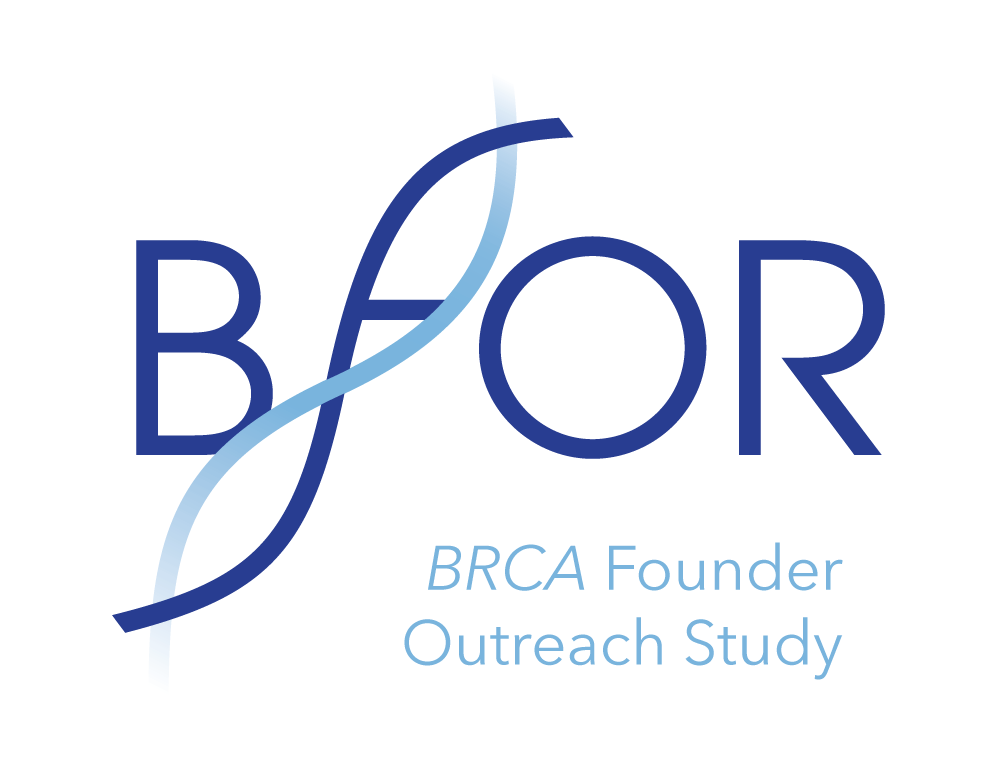About BRCA
What is a BRCA mutation?
BRCA is a gene found in all humans. It is part of our DNA. BRCA genes help cells grow and repair errors in the DNA.
Mutations in BRCA genes are spelling errors in the genetic code. They can cause the gene to not function properly. This can increase the risk for breast, ovarian, prostate, and possibly other cancers.
BRCA and Cancer Risks
The breast cancer lifetime risk is 10-12% for women without a BRCA mutation. It is as high as 80% for women with a BRCA mutation.
The lifetime risk of ovarian cancer is 1.5% for women without a BRCA mutation. It is as high as 40% for women with a BRCA mutation.
Men who carry BRCA gene mutations also have increased cancer risks, including for prostate cancer and male breast cancer.
BRCA Genetic Testing
Until now, BRCA genetic testing has largely been limited to those with a family history of breast, ovarian, or prostate cancers. This testing does not capture up to 55% of individuals with certain BRCA mutations. An estimated 90 percent of BRCA carriers do not know that they are BRCA-positive.
A positive or negative BRCA test does not provide 100 percent certainty as to whether someone will develop cancer. However, testing provides those who are BRCA-positive with the knowledge to take steps that can significantly reduce their cancer risks. These steps may include earlier and more frequent cancer screening, cancer risk-reducing surgery, and risk-reducing medication.
Experts believe that approximately 40 percent of all ovarian cancer in women of Ashkenazi Jewish ancestry may be prevented by BRCA testing and risk-reducing surgery.
A single BRCA test can help spread knowledge about heightened cancer risk across an entire family. If you have a BRCA mutation, this means you inherited it from either your mother or father. As a result, there is a 50% chance that each of your siblings or children will also have the mutation.


